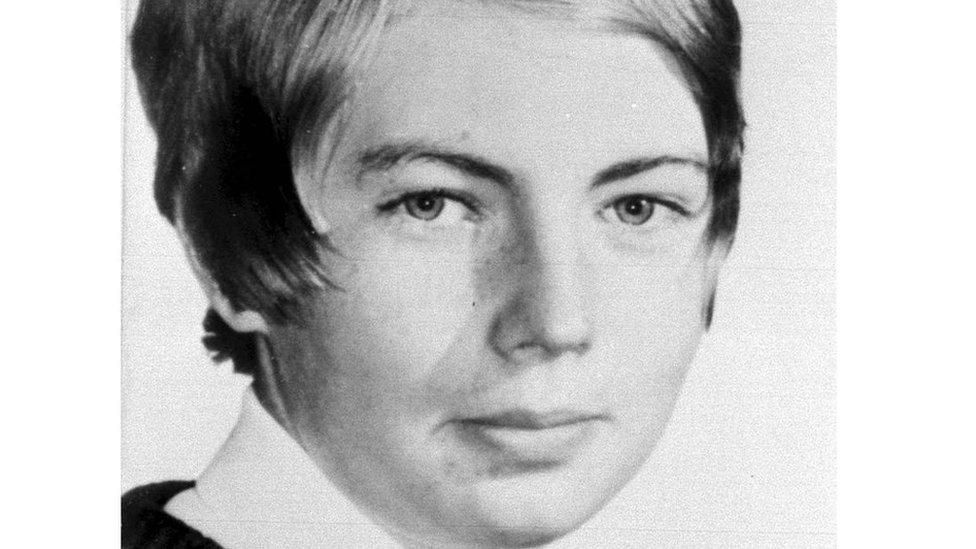Carol Ann Stephens murder: Police still hope to solve 1959 killing
- Published
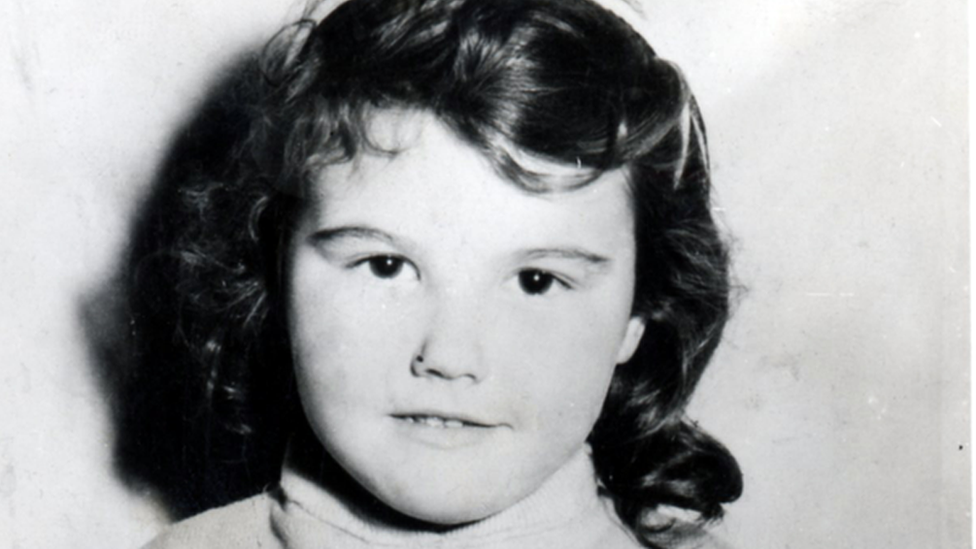
Carol Ann Stephens, who was abducted and murdered in April 1959
Police say they have not given up hope of solving one of Wales' most notorious murders.
Cardiff schoolgirl Carol Ann Stephens was abducted in April 1959, and her body found two weeks later in a remote spot in Carmarthenshire.
Despite a huge manhunt and the help of the Metropolitan Police, the six-year-old's killer was never caught.
But officers say the case still remains active and they hope someone can provide answers for Carol's family.
On Tuesday 7 April, in the Cathays area of Cardiff, Carol told her mother Mavis she was going out to play and left their house in Malefant Street.
Her family never saw her alive again.
The disappearance would spark one of the biggest police operations in Wales.
Over the next few days, thousands of cars were stopped in Cardiff, and police watched ports to see if the abductor was taking Carol out of the country.
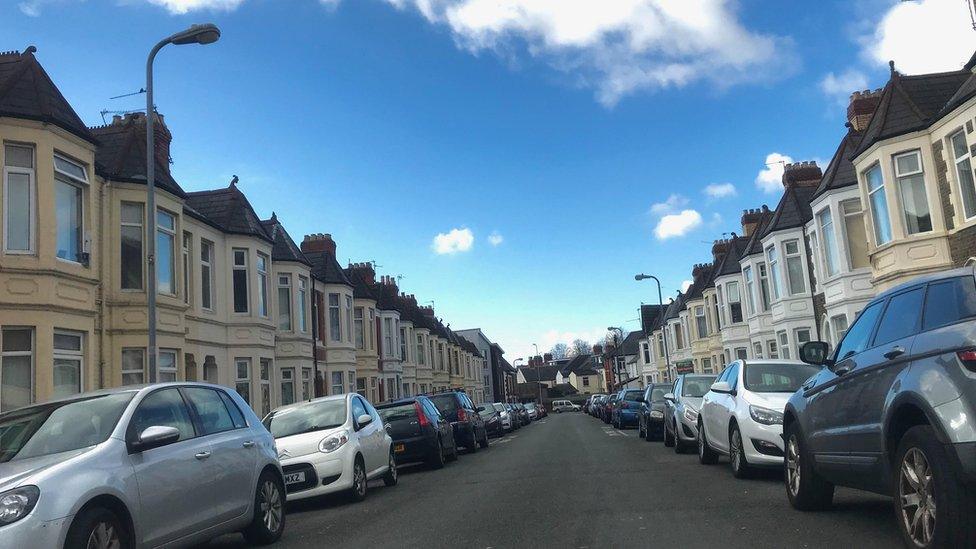
Malefant Street in Cardiff, where Carol Ann Stephens lived
Residents were asked to check garden sheds and farmers were told to search their outbuildings. There was even talk of draining Roath Park Lake as part of the search.
The huge search was in vain, however. Exactly two weeks after Carol disappeared - on 21 April - a surveyor working in a narrow river culvert near the village of Horeb, north of Llanelli, came across the little girl's body.
She had been suffocated and dumped in the water.
Despite the interest in the case - more than 400 people waited outside Llanelli Town Hall to hear the verdict of Carol's initial inquest - police had very little to work with.
She had told her friends she had a "new uncle" who had been taking her for drives, and she had been seen talking to a man in a car on the day she disappeared, but apart from that, police had many questions to answer.
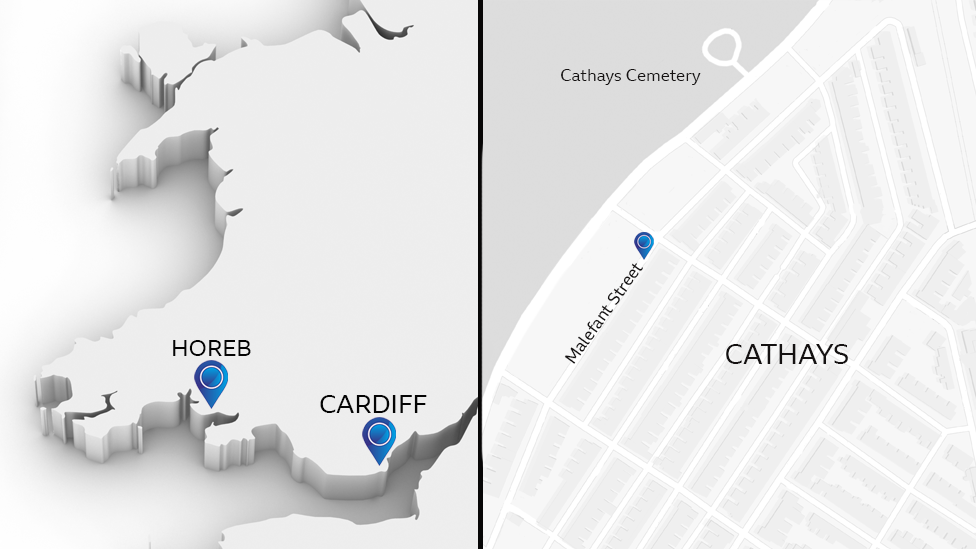
Carol Ann Stephens was abducted from near her home in Cardiff, and her body found in Carmarthenshire
Had Carol known her killer? Did the remote location of her body mean it was someone who knew the Horeb area well? Had anyone seen Carol with her abductor on the journey west?
Those questions now face Det Ch Insp Mark Lewis, who works in the Major Crime Review team at South Wales Police.
Sixty years on from the murder, Carol's case is one of the oldest the force is dealing with.
Despite that, Det Ch Insp Lewis hopes the crime can be solved, not least because it still casts a shadow over parts of south Wales.
Snatched off street
He said: "We may not be in a position to ever prosecute someone for this case, but the impact on the community in Cathays, the family and friends - some of whom are still alive - and the people of Horeb and Llanelli was very strong and people would still like answers.
"I can tell you there is still a dark cloud hanging over some of those communities.
"There was a lot of trust in those days, children played in the street and people left their doors open.
"For a child to be snatched off the street was a shock in Cardiff, but it was a huge shock for people living in Horeb as well. This was a sleepy little village where people just got on with their lives quite peacefully.
"For a six-year-old child to be taken, murdered and then dumped in the middle of nowhere, that leaves a lasting legacy so it would be fantastic if we could provide answers for those communities."
In 1959, police trying to catch Carol's killer did not have much to go on.
Today, Det Ch Insp Lewis and his colleagues face the same challenges - plus the fact many people crucial to the investigation are no longer alive.
"The passage of time is a huge obstacle. Where there are witnesses still alive, recollection of events proves to be difficult," he said.
"At that time for crime scene investigators, DNA and, to a certain extent, blood evidence wasn't really something that was being dealt with.
"If that crime scene had been worked today, things would have been different. Recovery of the original case files and exhibits has proved difficult as well.
"But we've had successes with historic cases in the past, as have other forces, so we don't give up hope."
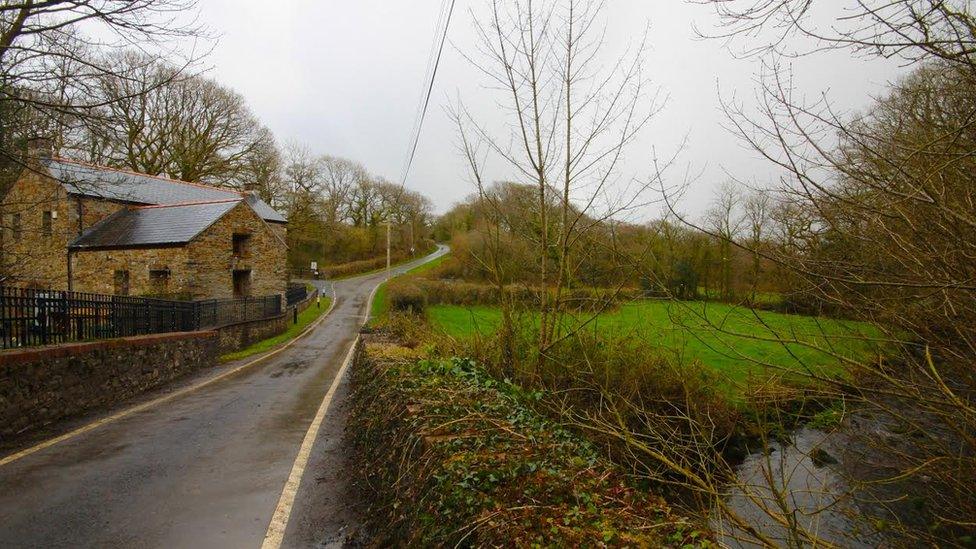
The village of Horeb in Carmarthenshire today
Horeb is a small hamlet these days. Back in 1959 it was tiny. Susan Bayliss was 10 at the time of the murder.
Her family ran the Waun Wyllt Inn, not far from where Carol's body was found. As the only place in the village with a phone, it became the hub for not just the police but journalists as well.
"When we lived there Horeb was only four or five houses - that was the village. The pub was a typical country pub with one bar, a darts room and a back room," she said.
"My main memory of the time of the murder is of the police and journalists from papers like the News of the World being in the pub for about a fortnight. I can remember my mother making sandwiches and cups of tea all day long.
"The murder was the only story there for years afterwards, and still is I imagine."
Cold, wet culvert
Susan and her family left Horeb in 1964, but she remembers people suspecting the killer may have been somebody local.
"I know the spot where the body was found, the little culvert. Yes it's by the side of the road but it's concealed by hedges and you wouldn't know the culvert was there unless you were local," she said.
"When the police interviewed my mother she was asked about commercial travellers - they'd call them reps these days. Because the pub was a free house you'd often get those people calling in."
Monica Richards, who is now 88 and lived in Felinfoel, Llanelli at the time of the murder, said: "It was tragic to think of that poor child being dumped in a cold, wet culvert in Horeb. It was such a quiet area and we couldn't believe something like that could happen.
"It was a huge story for the area and in fact the country as a whole. It was the talk of Llanelli for a long, long time."
Hundreds of people attended Carol's funeral as she was laid to rest in Cathays Cemetery on 27 April, but interest in the case has faded over the years and it remains one of Wales' most notorious unsolved murders, external.
Anniversary appeal
Carol's mother Mavis passed away in 2002, not knowing who killed her little girl.
The Cathays that Carol and her friends played in would be unrecognisable to her now.
The street she grew up on is now home to hundreds of students, and the local shops on Crwys Road have been largely replaced with cafes and other businesses.
But while the memory of this horrific crime has faded, Det Ch Insp Lewis still hopes someone will come forward with new information.
"This being the 60th anniversary of Carol's death, it's an apt time for me to appeal to the communities of Cardiff and Horeb, and the wider communities of south Wales, that if anyone has got information as to the identity of the killer, we are still interested," he said.
Anyone with information about the murder should call 101 or use the Crimestoppers anonymous line on 0800 555 111.
- Published12 September 2017
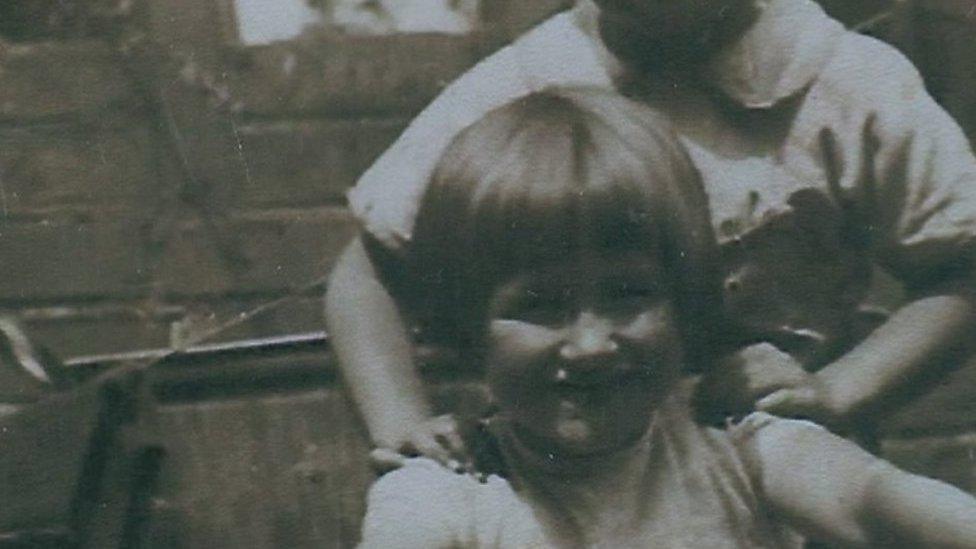
- Published8 April 2019
